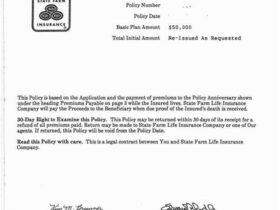Insurance can be complex. Navigating the myriad of policies, understanding the fine print, and choosing the right coverage can feel overwhelming. That’s where insurance brokers come in. In the United States, insurance brokers act as vital intermediaries, connecting individuals and businesses with the insurance solutions they need. This article clarifies the role of an insurance broker, explaining their functions, the value they bring, and what to consider when choosing one.
What Does an Insurance Broker Do?
An insurance broker serves as an intermediary between clients and insurance companies. Unlike insurance agents who represent a single insurance company, brokers are independent and work on behalf of their clients, offering products from multiple insurers. Their primary goal is to find the most suitable insurance coverage at the best possible price for their client’s specific needs.
- Assessing Needs and Risks: The first step an insurance broker takes is to understand the client’s specific needs and risk profile. This involves gathering detailed information about their assets, liabilities, and potential exposures. For individuals, this might include assessing their home, vehicles, health, and life insurance needs. For businesses, it could involve evaluating property, liability, workers’ compensation, and other business-related risks.
- Researching and Comparing Policies: Once the broker understands the client’s needs, they research available insurance policies from various companies. They compare policy features, coverage limits, exclusions, and premiums to identify the options that best meet the client’s requirements.
- Providing Advice and Recommendations: Based on their research, the broker provides expert advice and recommendations to the client. They explain the pros and cons of different policies, helping the client make an informed decision about which coverage to choose.
- Negotiating with Insurers: Insurance brokers often negotiate with insurance companies on behalf of their clients to secure the best possible terms and premiums. Their industry knowledge and relationships can be invaluable in obtaining favorable outcomes.
- Arranging Coverage: Once the client has chosen a policy, the broker arranges the coverage and handles the necessary paperwork. They ensure that all the details are accurate and that the policy is properly implemented.
- Providing Ongoing Support: The broker’s role doesn’t end once the policy is in place. They provide ongoing support to their clients, assisting with policy renewals, amendments, and claims. They act as an advocate for their clients in the event of a dispute with the insurance company.
The Value of Using an Insurance Broker

Engaging an insurance broker offers several advantages for individuals and businesses alike.
- Expertise and Knowledge: Insurance brokers possess in-depth knowledge of the insurance market, including different types of policies, coverage options, and insurance companies. They can navigate the complexities of insurance and provide expert guidance to their clients.
- Access to Multiple Insurers: Because brokers are independent, they have access to a wide range of insurance companies and policies. This allows them to find the best coverage options for their clients, rather than being limited to the products of a single insurer.
- Time Savings: Researching and comparing insurance policies can be time-consuming. Brokers handle this process on behalf of their clients, saving them valuable time and effort.
- Cost Savings: Brokers can often secure more competitive premiums than individuals or businesses could obtain on their own. They leverage their market knowledge and negotiating skills to find the best rates.
- Customized Solutions: Brokers tailor insurance solutions to meet the specific needs of each client. They don’t offer one-size-fits-all policies but instead create customized coverage plans that address the client’s unique risks and circumstances.
- Claims Assistance: In the event of a claim, brokers act as advocates for their clients, helping them navigate the claims process and ensuring that they receive fair settlements.
Types of Insurance Brokers

Insurance brokers can specialize in different types of insurance, depending on their expertise and the needs of their clients. Some common types of insurance brokers include:
- Personal Lines Brokers: These brokers focus on insurance for individuals and families, such as auto, home, life, and health insurance.
- Commercial Lines Brokers: These brokers specialize in insurance for businesses, such as property, liability, workers’ compensation, and commercial auto insurance.
- Employee Benefits Brokers: These brokers focus on providing employee benefits packages, such as health, dental, and vision insurance, to businesses.
- Specialty Lines Brokers: These brokers specialize in niche insurance products, such as marine, aviation, and cyber insurance.
Choosing the Right Insurance Broker
Selecting the right insurance broker is crucial to ensuring that you receive the best possible coverage and service. Here are some factors to consider when choosing a broker:
- Experience and Expertise: Look for a broker with extensive experience and expertise in the type of insurance you need.
- Reputation and Reviews: Check the broker’s reputation and read online reviews to get an idea of their service quality.
- Range of Insurers: Ensure that the broker has access to a wide range of insurance companies to provide you with diverse options.
- Transparency and Communication: Choose a broker who is transparent about their fees and commissions and who communicates clearly and effectively with you.
- Customer Service: Select a broker who provides excellent customer service and is responsive to your needs.
- Licensing and Credentials: Verify that the broker is properly licensed and credentialed in your state.
Cost Structure and Commission Models

Understanding how insurance brokers are compensated is essential for transparency and effective financial planning. In the US, brokers are typically compensated through one of the following models:
- Commission-Based Model: This is the most common model, where the broker receives a percentage of the premium paid by the client. The commission is typically paid by the insurer and is included in the premium.
- Fee-Based Model: In this model, the broker charges the client directly for their services. The fees can be fixed or hourly and are agreed upon before any work begins.
- Hybrid Model: Some brokers use a hybrid approach, combining commissions from insurers and direct fees from clients. This model requires clear communication to avoid confusion.
Challenges and Future Trends

The insurance brokerage sector faces several challenges, including digital transformation, regulatory changes, and evolving consumer expectations. To remain competitive, brokers must adapt to these changes by investing in technology, staying compliant with regulations, and providing personalized customer service.
In conclusion, insurance brokers play a vital role in the US insurance market by providing expertise, access to multiple insurers, and personalized service. By understanding what brokers do and the value they offer, individuals and businesses can make informed decisions about their insurance coverage and secure the protection they need.





Leave a Reply